The residents of a German village are doing their part to fight Napoleon but two brothers also find time to vie for the affections of the baron’s daughter. This becomes especially awkward when one of them is conscripted into the French army.
Home Media Availability: Stream courtesy of EYE.
Bang!
The Eiko film company only existed for a decade and doesn’t have nearly the cultural cachet of Ufa, Germany’s top studio for much of the silent era, but when I came across one of its releases, I was eager to dig in. After all, we can’t judge all of American cinema by MGM or all of British cinema by Hepworth.
Hard Times is a historical two-reeler set in the year 1813. Napoleon is stomping all over Europe and an international band of Germans are forming a corps to fight the French. At the time, Germany as we know it was a collection of kingdoms united only by shared language and Prussia took the initiative against Napoleon, while Bavaria allied with him.
The film was clearly intended for a German audience and it doesn’t dig into these facts too deeply because silent films of this era didn’t include exposition unless it was unavoidable. They had about twenty to twenty-five minutes to tell their story and they were in and out lickety-split. No history lessons for you! (The version I viewed was translated from the German to the Dutch and the main title states that it is an episode from the year 1813, the age of Napoleon.)
The film revolves around Irmgard, the daughter of Baron von Rotenbruch. Her father joins the calvary of the Lützow Free Corps, an international force in the Prussian army. The local women have given up their jewelry in order to finance the soldiers and the young men are joining up. Irmgard is sent to stay with one of her father’s tenants and they have two sons, Hans and Steffen.
Hans is a strapping, patriotic lad but he has a problem with his leg that causes him to walk with a limp, so he is not permitted to join. Steffen is a coward and declines to volunteer. Both brothers are attracted to Irmgard but she only has eyes for Hans.
The French military arrives and attempts to conscript all the local youths into their own army. Hans is once again rejected because of his leg but Steffen is quickly stuffed into a uniform, much to the disgust of Irmgard. The French commander has been harassing her and, worst of all, he wears his boots when he lies on the furniture.
The commander follows and attacks Irmgard but Hans rescues her and his family hides him under the floorboards. The commander bribes Steffen to tell him where his brother is and, well, family loyalty is nothing when compared to cash money.
Hans is about to be shot when the cavalry literally rides to the rescue and he is saved by Baron von Rotenbruch. Steffen is taken out for execution but the Prussians merely shoot at the sky. Having learned his lesson, Steffen swears to never turn his back on his country again and is instead faced with the prospect of awkward family dinners for the rest of his days.
(Unfortunately, I could not find mention of the castmembers’ names. I was, however, able to use trade magazine coverage to confirm the names of their characters. Character names are sometimes changed in translation.)
The film is handsome, if a bit stiff. The studio scenes are rather obvious sets but the exteriors are extremely attractive, making the most of the countryside and employing natural lighting effects like dappled shade under a leafy bower. I imagine that the Prussian uniforms were easy to come by—military reenactors were an absolute boon to the early film industry—so the whole production seems to have been a tidy and profitable programmer for Eiko.
Eiko was founded in 1912, a year before Hard Times was released. By this point, movies were established as a wildly popular form of entertainment and supply was not meeting demand. That said, viewers still had standards and were demanding longer, more complex films. Hundreds of film companies set up shop worldwide and many of them failed to gain a foothold.

Eiko’s strategy to make a splash seems to have involved the one-two punch of spectacle and patriotism. The company’s release Amerika-Europa im Luftschiff (America-Europe in an Airship) came on the heels of Hard Times, with a premiere in late 1913 or early 1914. (Release dates were not precise during the silent era.) Released in the United States by Universal and breathlessly retitled The Sky Monster; or, Kidnapped in Midair, the film featured not only an airship but also an attack by Cossacks. Go big or go home.
(For context, my review of The Squaw Man covers the film’s importance in the founding of Paramount as a major motion picture studio. The historical/patriotic strategy was also employed in France with The Assassination of the Duke of Guise and in Russia with Stenka Razin.)
It is often said that it’s rude to discuss religion or politics in mixed company but that never applied to the movies. Cinema had been recognized for its value as propaganda from the beginning, with American studios embracing religious content in order to fight of censorship efforts and cheerfully pumping out pro-war pictures to support any current conflict. There was also a craze for anniversary pictures commemorating historical events on a landmark anniversary. Eiko selected politics and historical milestones—1913 marked the 100th anniversary of the founding of the Lützow Free Corps—as a major focus of its productions.
The Lützow Free Corps was similar to the Pony Express in that their existence was brief and perhaps not quite as glittering as legend had it but their symbolic value for patriotic myth-building was off the charts. A united Germany had been in existence for less than fifty years when Hard Times was shot and the Corps, all volunteer and from all parts of the German-speaking world, ticked a great many patriotic boxes. (And, in fact, the Corps was adopted as a symbol by extreme nationalists. Indeed, the Third Reich had its own cycle of Prussian films, portraying the kingdom as a fascist ideal.)
Hard Times was not the only patriotic picture that Eiko released. They followed it with a biopic about German unification mastermind Otto von Bismarck and a picture titled Heil Kaiser Dir!, timed to be released just before Wilhelm II’s birthday and billed as a patriotic living poem. (The Lützow Free Corps was also covered in the feature-length biopic Theodor Körner, released a year before Hard Times.)
With all of this context in mind, Steffen betraying his brother being portrayed as less severe than his act of betraying his country makes sense. Steffen is punished to an appropriate degree in the eyes of the filmmakers and then sees the error of his ways and swears to be a good son of Germany once again. (This message was overtly described in a contemporary German synopsis, so this was no mistake in title card translation.) His fate is also softer than some cowards in American films.
The iconography of Hard Times—women contributing their jewelry to the cause, men lining up to enlist, Irmgard fawning over her father’s military regalia, a family hiding a patriot in a concealed chamber—was standard for patriotic films of the period, no matter which country released them, and they were likely drawing from the same inspirations in stage and literature. Change the costumes and the titles and the film could be transferred whole into the American Revolution or Civil War, the Mexican Revolution, the Independence Movement in Latin America, anywhere at all, really.
Particularly amusing is Hard Times employing the tried and true “We accuse you of looting, pillaging, murdering civilians and littering” trope so beloved in 1910s propaganda films. The French officer is out to conscript German kids against their will but a fair amount screentime is given to his habit of lying on the good sofa while wearing his dirty boots. (This trope was turned on the Germans in WWI era American pictures—they’re nasty killers AND they also drink wine directly out of bottles, if you please.)
Overall, though, Hard Times is a well-made picture, though some of the acting leans toward the arm-flailing variety that ported over to silent films from the stage. It is particularly rewarding when we examine it in the context of film studio marketing strategies and the role patriotism and nationalism played in their choices.
Where can I see it?
Stream online with Dutch titles courtesy of EYE.
☙❦❧
Like what you’re reading? Please consider sponsoring me on Patreon. All patrons will get early previews of upcoming features, exclusive polls and other goodies.
Disclosure: Some links included in this post may be affiliate links to products sold by Amazon and as an Amazon Associate I earn from qualifying purchases.



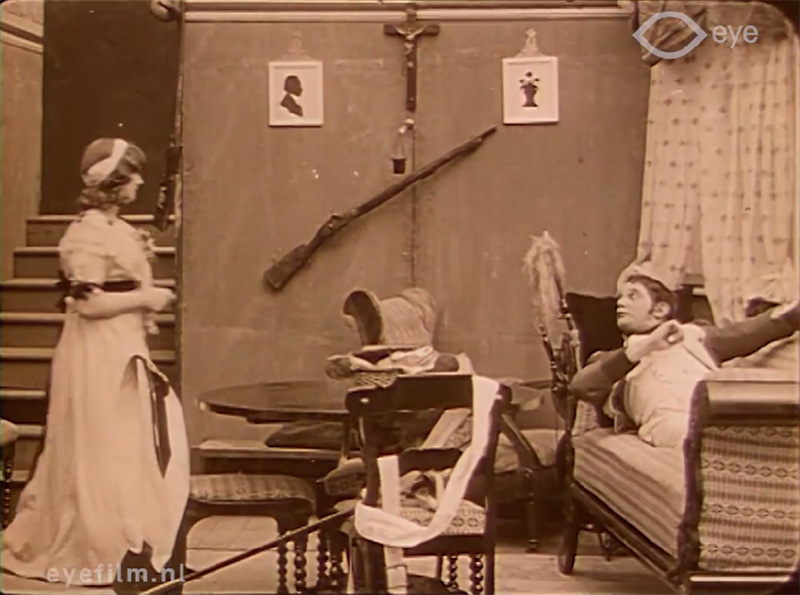
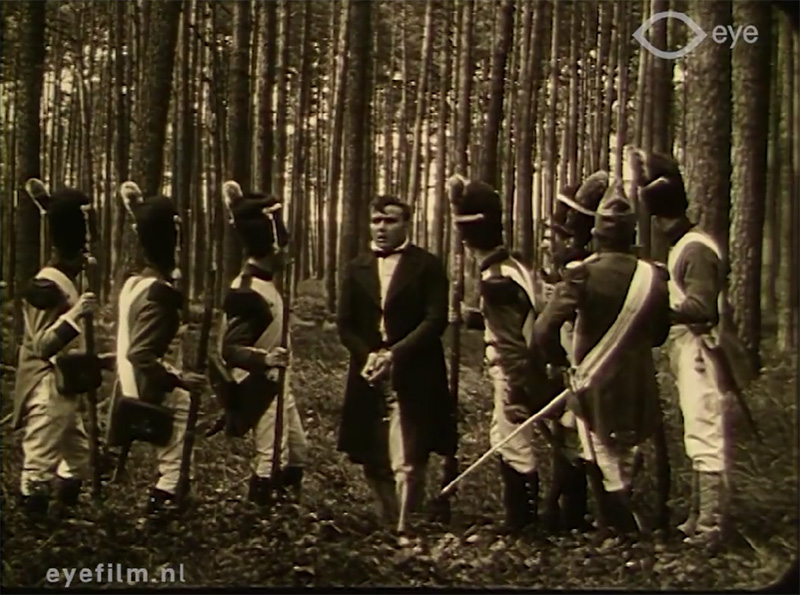
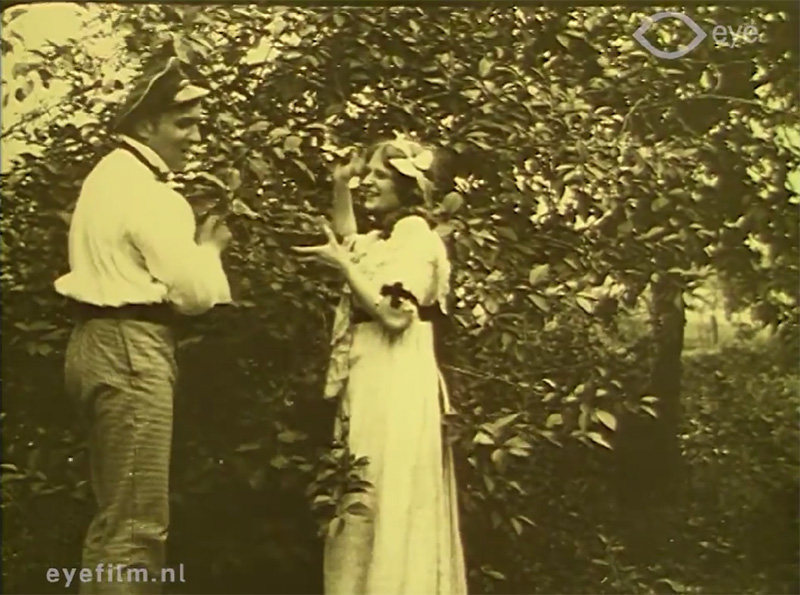

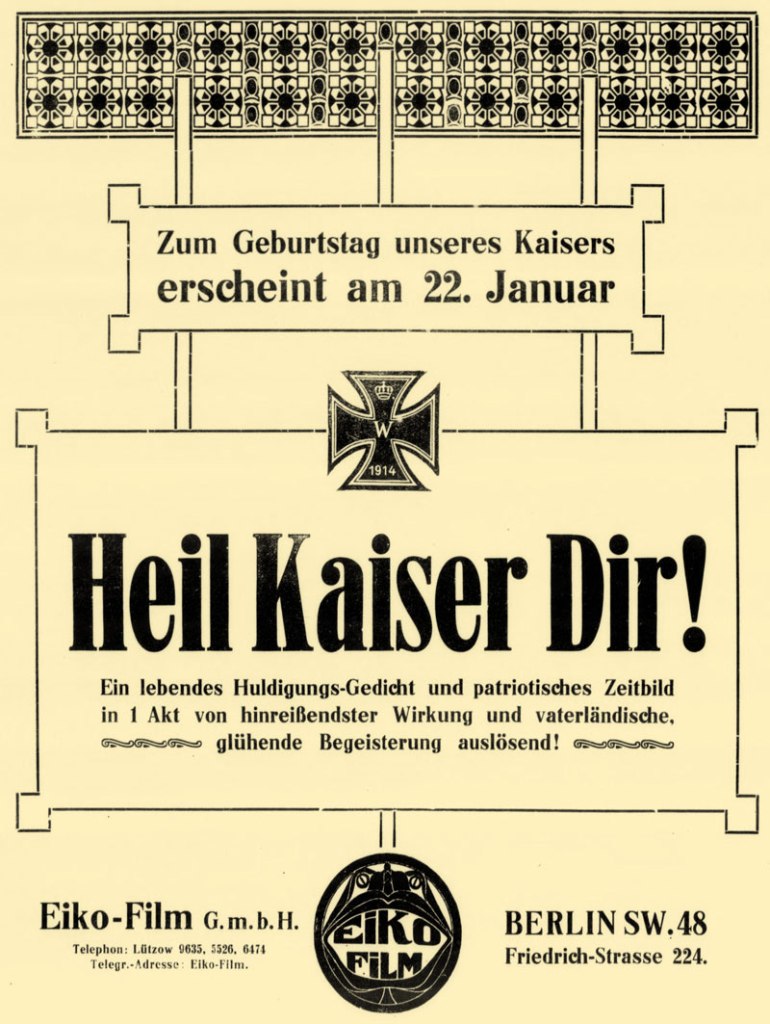

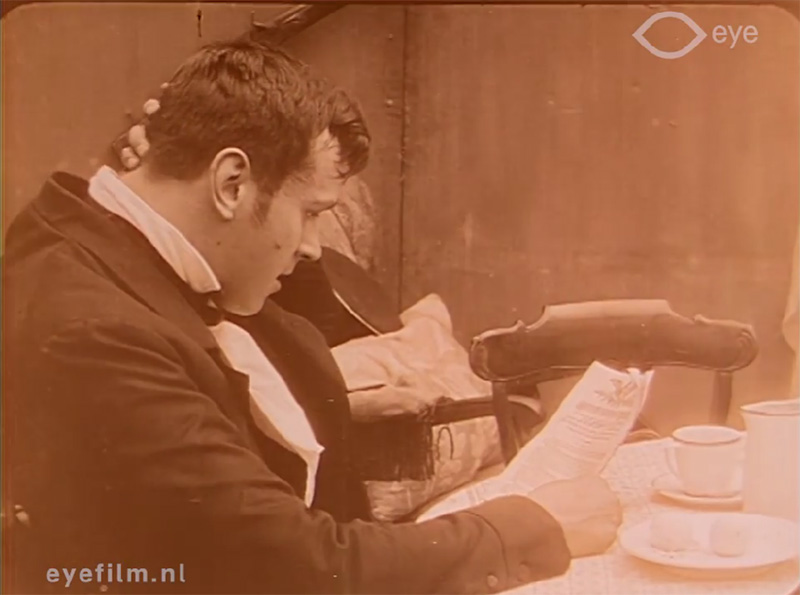
I did enjoy this movie. That Steffen was a nasty piece of work. I thought he got off lightly at the end. “Faced with the prospect of awkward family dinners for the rest of his days”. LOL 😄. Many thanks for your highly enjoyable review.
Thank you so much!